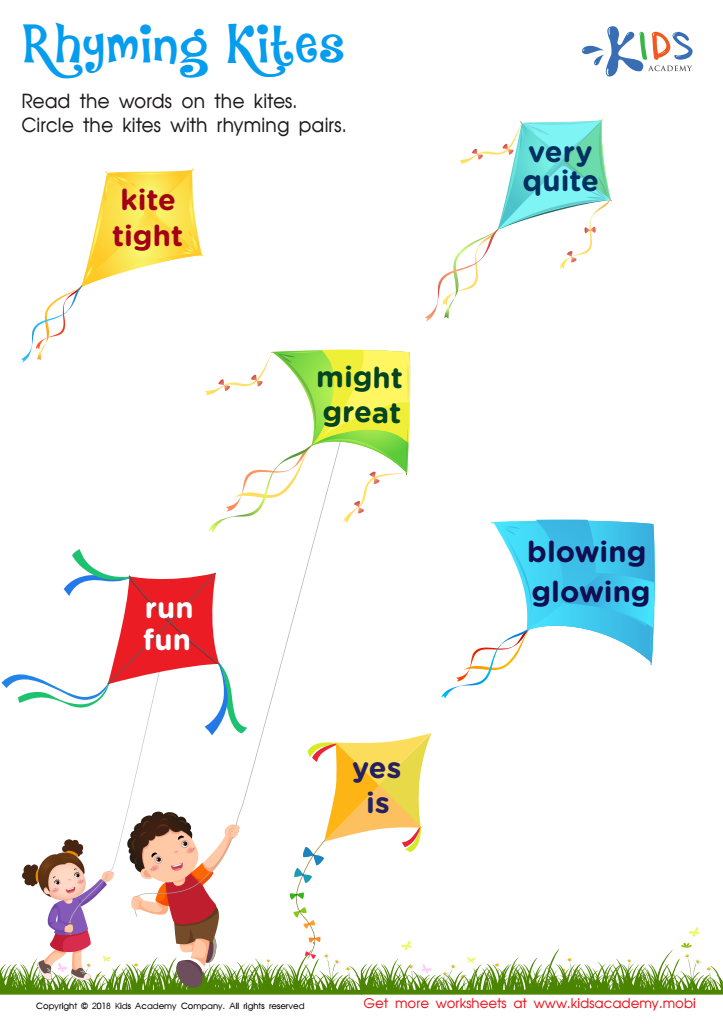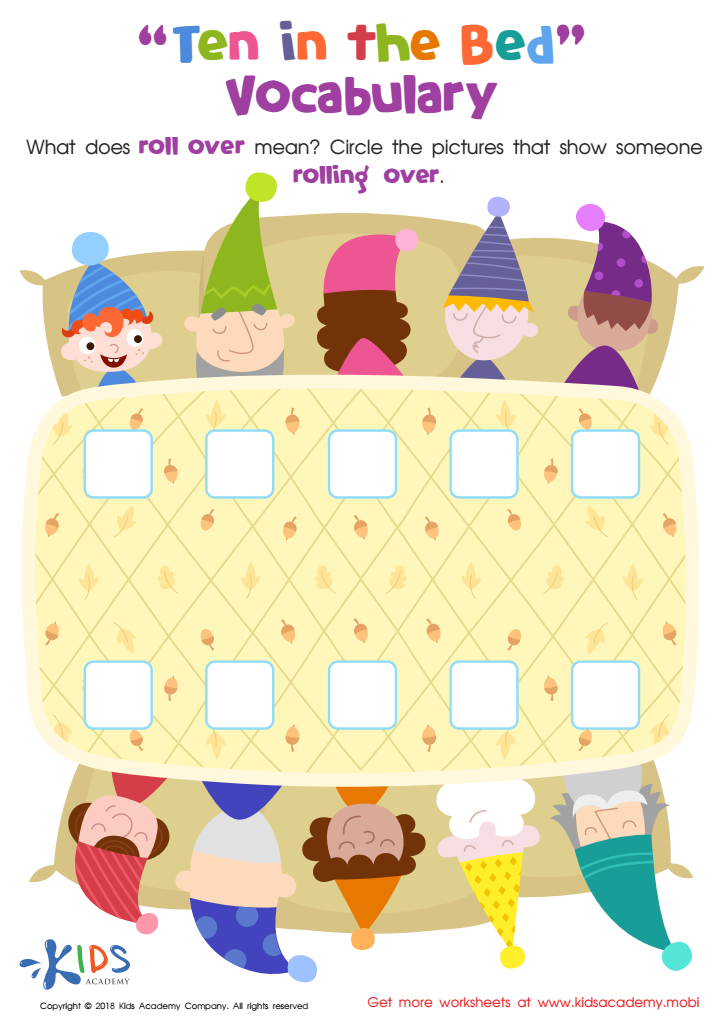Rhyming skills Building Vocabulary Worksheets for Ages 4-8
3 filtered results
-
From - To
Our "Rhyming Skills Building Vocabulary Worksheets for Ages 4-8" are designed to enhance your child's linguistic proficiency through engaging and educational activities. These expertly crafted worksheets help young learners recognize and generate rhymes, strengthening their phonemic awareness and vocabulary. Perfect for early readers, these printables make learning fun with colorful illustrations and playful exercises. Whether used in the classroom or at home, they provide foundational skills crucial for reading development. Empower your child to become a confident reader with our comprehensive rhyming vocabulary resources. Visit Kids Academy now to download and start your learning adventure!


Rhyming Kites Worksheet


Ten in the Bed: Vocabulary Worksheet
Rhyming skills are foundational to early literacy and play a crucial role in vocabulary building for children ages 4-8. When children learn to recognize and produce rhyming words, they become more sensitive to the sounds within words, a critical skill known as phonemic awareness. This awareness paves the way for successful reading and writing, as it helps children understand that words are made up of separate sounds.
Additionally, rhyming helps children to expand their vocabulary. When children are exposed to rhymes, they are introduced to a variety of words in a playful context. Through songs, poems, and nursery rhymes, they encounter new words and ideas, often memorizing them more easily due to the repetitive and rhythmic nature of rhymes. This repetition strengthens their memory and word recognition.
Furthermore, rhyming activities stimulate children’s creativity and enjoyment of language. By engaging in these fun, often musical activities, children develop a love for words and reading, setting the stage for a positive attitude towards learning. Therefore, both parents and teachers should place emphasis on rhyming activities to foster early language skills and inspire a lifelong love of learning.

 Assign to My Students
Assign to My Students


















.jpg)












